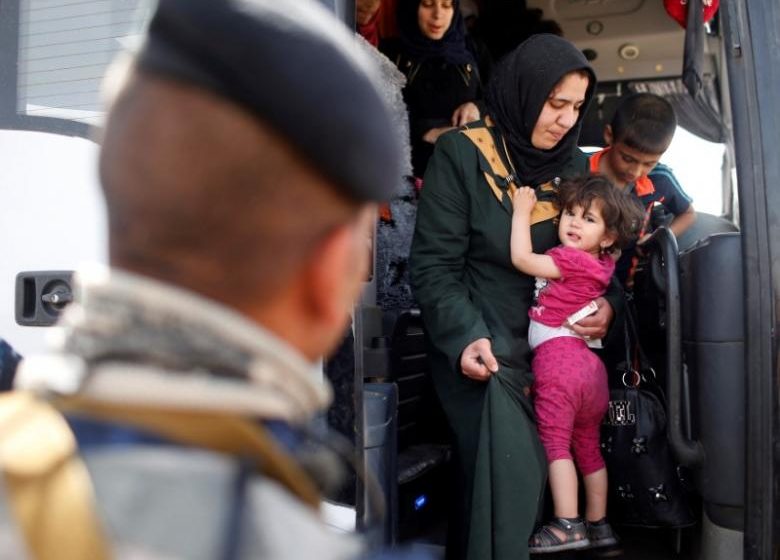Monitor: returning Islamic State-linked families blocked from Fallujah

A member of Iraqi forces looks at displaced civilians as they get off a bus after their arrival at Hammam al-Alil camp south of Mosul, Iraq May 10, 2017. REUTERS/Suhaib Salem

Fallujah (IraqiNews.com) Families linked to Islamic State militants are denied return to their home regions in Anbar’s city of Fallujah, an Iraqi human rights monitor said Thursday, recasting light on on popular and semi-official rejection of militants’ civilian affiliates.
Tribal disputes and the local desire for retaliation have prevented a large number of families who fled Fallujah in 2016 from returning to their original residences though the city was recaptured by Iraqi government forces more than a year earlier, according to the Iraqi Observatory for Human Rights (IOHR).
The organization warned that keeping a number of civilians at refugee camps makes them susceptible to radicalization.
“I live at Ameriya camp in Fallujah. Though I completed all security procedures, I am still prevented from returning to my city because my brother was an Islamic State member,” one refugee told the observatory.
“Anbar province (officials) set a condition for some families eager to return that they disown their Islamic State relatives in a written form….approved by a court,” another migrant civilian told the organization.
“The written disavowal is not enough protection for the people, the problem is among tribes, not with the government,” said the observatory. “And since tribes are not committed to the disavowal submitted by Daesh (IS) relatives, their (the families) remain under a threat,” read the IOHR’s report.
An official at the Ameriya camp in Fallujah told IOHR that 50 families, out of 190, are rejected by the city’s tribes and authorities because they belatedly left the city while under IS control, something, he said, was locally considered evidence to their allegiance to the extremist group.
“Cases of retaliation and hostilities at the liberated areas were expected, but the Iraqi government’s inability to contain those disputes and enforce the law was not,” IOHR said.
Early July, Jan Kubis, the U.N. representative in Iraq, told the Security Council in a briefing that Iraqis perceived to have links with the Islamic State were subjected to forced evictions, confiscation of homes and other retribution and revenge measures. He urged to halt “collective punishments” of those individuals.
